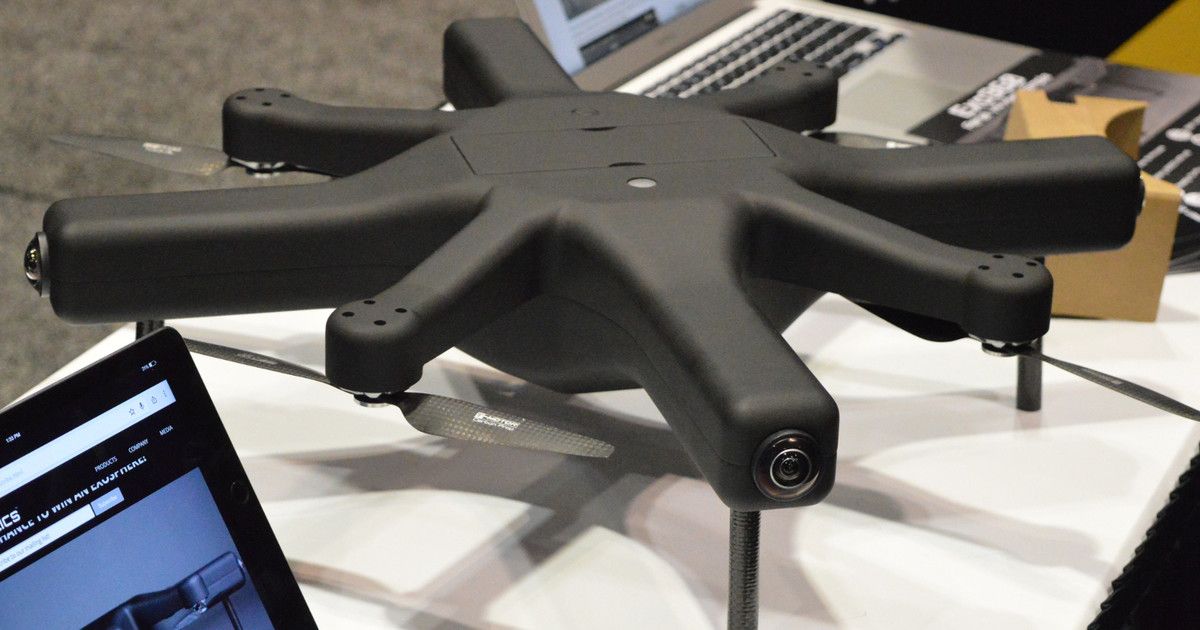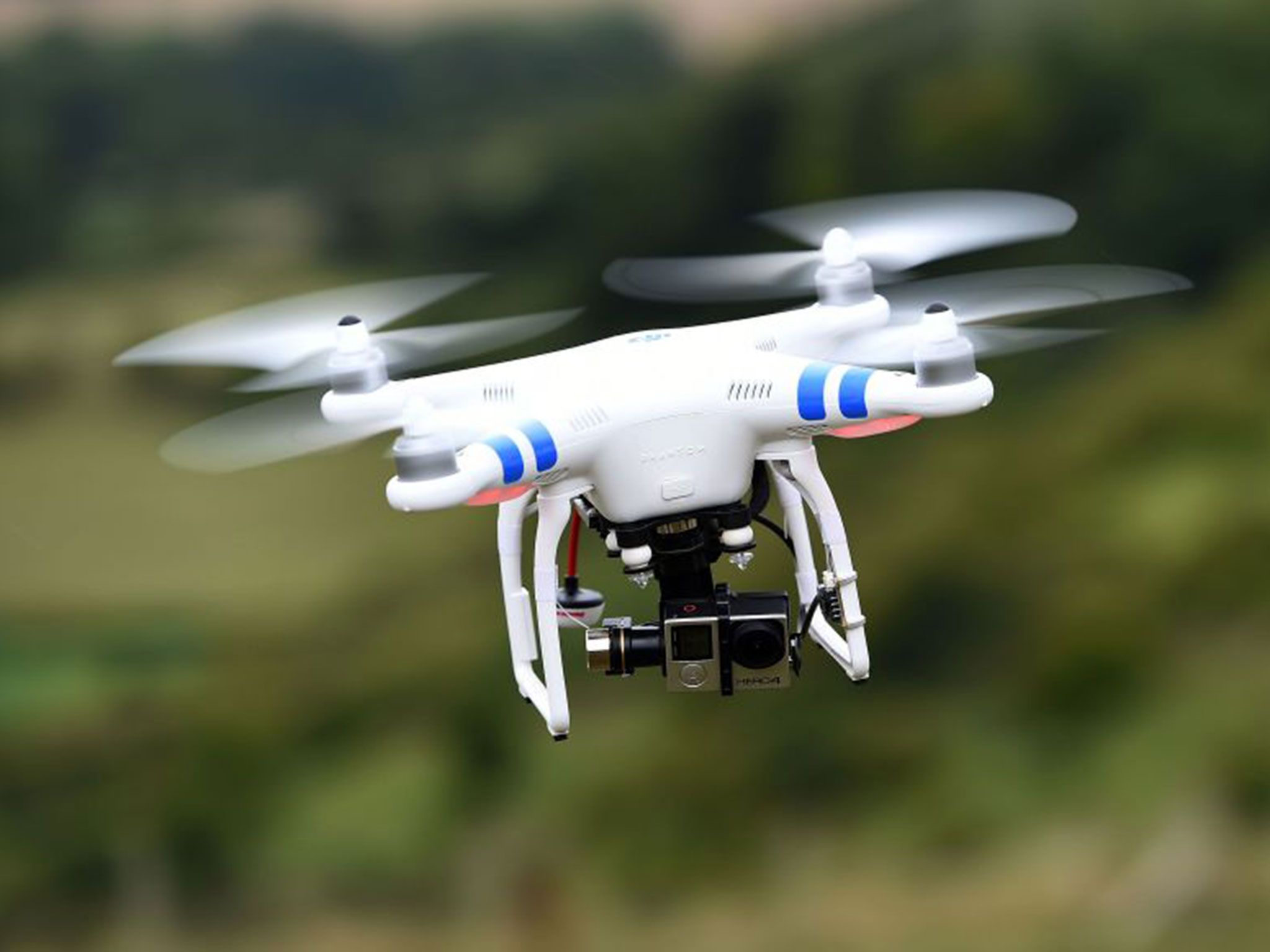Queen B Robotics has combined drones with virtual reality, coming up with a drone with five cameras, able to capture 360-degree video.



The US military’s research arm says its robotic “space plane” program has received funding for the next phase of development. Aiming to provide a quicker and cheaper way to launch satellites, the still-conceptual vehicle may fly as early as 2019.
The Experimental Spaceplane (XS-1) program is intended to prove that “routine and responsive access to space can be achieved at costs an order of magnitude lower than with today’s systems,” according to Jess Sponable, program manager at the Defense Advanced Research Projects Agency (DARPA).
After reviewing studies submitted by several aerospace conglomerates, DARPA has now issued a call for design proposals. The deadline for submissions is July 22.

A drone that can fly AND go underwater https://www.facebook.com//videos/572388199607050/
A drone that can fly AND go underwater?
Yes, please.

As a result of deforestation, only 6.2 million square kilometers remain of the original 16 million square kilometers of forest that formerly covered Earth. Apart from adveserly impacting people’s livelihoods, rampant deforestation around the world is threatening a wide range of tree species, including the Brazil nut and the plants that produce cacao and açaí palm; animal species, including critically-endangered monkeys in the remote forests of Vietnam’s Central Highlands, and contributing to climate change instead of mitigating it (15% of all greenhouse gas emissions are the result of deforestation).
While the world’s forest cover is being unabashedly destroyed by industrial agriculture, cattle ranching, illegal logging and infrastructure projects, Thailand has found a unique way to repair its deforested land: by using a farming technique called seed bombing or aerial reforestation, where trees and other crops are planted by being thrown or dropped from an airplane or flying drone.
The tree seed bombing in Thailand is one of the greatest examples of ‘Conscious Entrepreneurs’ or ‘Spiritual Entrepreneurs’ out there right.
Biography:
Stuart Russell received his B.A. with first-class honours in physics from Oxford University in 1982 and his Ph.D. in computer science from Stanford in 1986. He then joined the faculty of the University of California at Berkeley, where he is Professor (and formerly Chair) of Electrical Engineering and Computer Sciences and holder of the Smith-Zadeh Chair in Engineering. He is also an Adjunct Professor of Neurological Surgery at UC San Francisco and Vice-Chair of the World Economic Forum’s Council on AI and Robotics. He has published over 150 papers on a wide range of topics in artificial intelligence including machine learning, probabilistic reasoning, knowledge representation, planning, real-time decision making, multitarget tracking, computer vision, computational physiology, and global seismic monitoring. His books include “The Use of Knowledge in Analogy and Induction”, “Do the Right Thing: Studies in Limited Rationality” (with Eric Wefald), and “Artificial Intelligence: A Modern Approach” (with Peter Norvig).
Abstract:
Autonomous weapons systems select and engage targets without human intervention; they become lethal when those targets include humans. LAWS might include, for example, armed quadcopters that can search for and eliminate enemy combatants in a city, but do not include cruise missiles or remotely piloted drones for which humans make all targeting decisions. The artificial intelligence (AI) and robotics communities face an important ethical decision: whether to support or oppose the development of lethal autonomous weapons systems (LAWS).
The UN has held three major meetings in Geneva under the auspices of the Convention on Certain Conventional Weapons, or CCW, to discuss the possibility of a treaty banning autonomous weapons. There is at present broad agreement on the need for “meaningful human control” over selection of targets and decisions to apply deadly force. Much work remains to be done on refining the necessary definitions and identifying exactly what should or should not be included in any proposed treaty.
Wednesday, April 6, 2016 from 12:00 PM to 1:00 PM (PDT)
Sutardja Dai Hall — Banatao Auditorium.
University of California, Berkeley.

BOSTON, May 19 (UPI) — Engineers at MIT and Harvard have designed a tiny bee-like robot capable of pausing mid-flight to perch on a variety of objects before once again taking to the air. The robot uses static electricity to momentarily cling to the underside of objects.
Robots designed for aerial surveys and related observational tasks, like quadcopters, are currently limited by short flight times. They tend to run out of battery rather quickly. While perching won’t extend a drone’s actual time in the air, the technology could empower UAVs to employ their power more strategically — periodically taking a moment to rest their wings, or blades.
Researchers tested their technology on RoboBee, a bug-like flying robot no bigger than a quarter. A small jolt of static electricity emitted through a tiny foam patch on the bee’s head allows it to land on and adhere to the underside of a plant or to the ceiling.

May. 12, 2016 — 5:58 — Tech Take: Allison Barrie on the DARPA designed hidden high-tech ocean pods designed to unleash Naval drones.

Google and Amazon were quick to put drones to use delivering orders.
But new research suggests delivery is just one small way drones are going to replace humans. The tiny airborne vessels will soon clean windows on skyscrapers, verify insurance claims and spray pesticide on crops.
The global market for drones, valued at around $2 billion today, will replace up to $127 billion worth of business services and human labour over the next four years, according to a new research by consulting firm PwC.